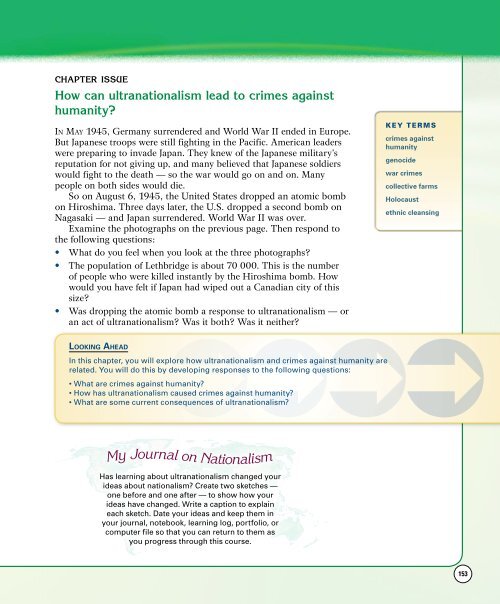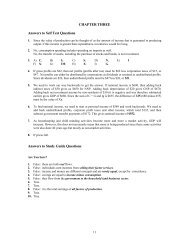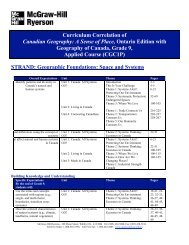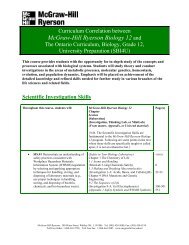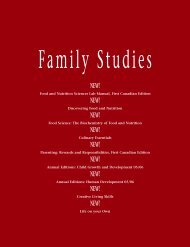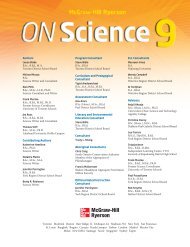Ultranationalism and Crimes against Humanity - McGraw-Hill Ryerson
Ultranationalism and Crimes against Humanity - McGraw-Hill Ryerson
Ultranationalism and Crimes against Humanity - McGraw-Hill Ryerson
Create successful ePaper yourself
Turn your PDF publications into a flip-book with our unique Google optimized e-Paper software.
c h a p t e r i s s u e<br />
How can ultranationalism lead to crimes <strong>against</strong><br />
humanity?<br />
In May 1945, Germany surrendered <strong>and</strong> World War II ended in Europe.<br />
But Japanese troops were still fighting in the Pacific. American leaders<br />
were preparing to invade Japan. They knew of the Japanese military’s<br />
reputation for not giving up, <strong>and</strong> many believed that Japanese soldiers<br />
would fight to the death — so the war would go on <strong>and</strong> on. Many<br />
people on both sides would die.<br />
So on August 6, 1945, the United States dropped an atomic bomb<br />
on Hiroshima. Three days later, the U.S. dropped a second bomb on<br />
Nagasaki — <strong>and</strong> Japan surrendered. World War II was over.<br />
Examine the photographs on the previous page. Then respond to<br />
the following questions:<br />
• What do you feel when you look at the three photographs?<br />
• The population of Lethbridge is about 70 000. This is the number<br />
of people who were killed instantly by the Hiroshima bomb. How<br />
would you have felt if Japan had wiped out a Canadian city of this<br />
size?<br />
• Was dropping the atomic bomb a response to ultranationalism — or<br />
an act of ultranationalism? Was it both? Was it neither?<br />
Lo o k i n g Ah e A d<br />
key terms<br />
crimes <strong>against</strong><br />
humanity<br />
genocide<br />
war crimes<br />
collective farms<br />
Holocaust<br />
ethnic cleansing<br />
��� �<br />
In this chapter, you will explore how ultranationalism <strong>and</strong> crimes <strong>against</strong> humanity are<br />
related. You will do this by developing responses to the following questions:<br />
• What are crimes <strong>against</strong> humanity?<br />
• How has ultranationalism caused crimes <strong>against</strong> humanity?<br />
• What are some current consequences of ultranationalism?<br />
My Journal on Nationalism<br />
Has learning about ultranationalism changed your<br />
ideas about nationalism? Create two sketches —<br />
one before <strong>and</strong> one after — to show how your<br />
ideas have changed. Write a caption to explain<br />
each sketch. Date your ideas <strong>and</strong> keep them in<br />
your journal, notebook, learning log, portfolio, or<br />
computer file so that you can return to them as<br />
you progress through this course.<br />
153


